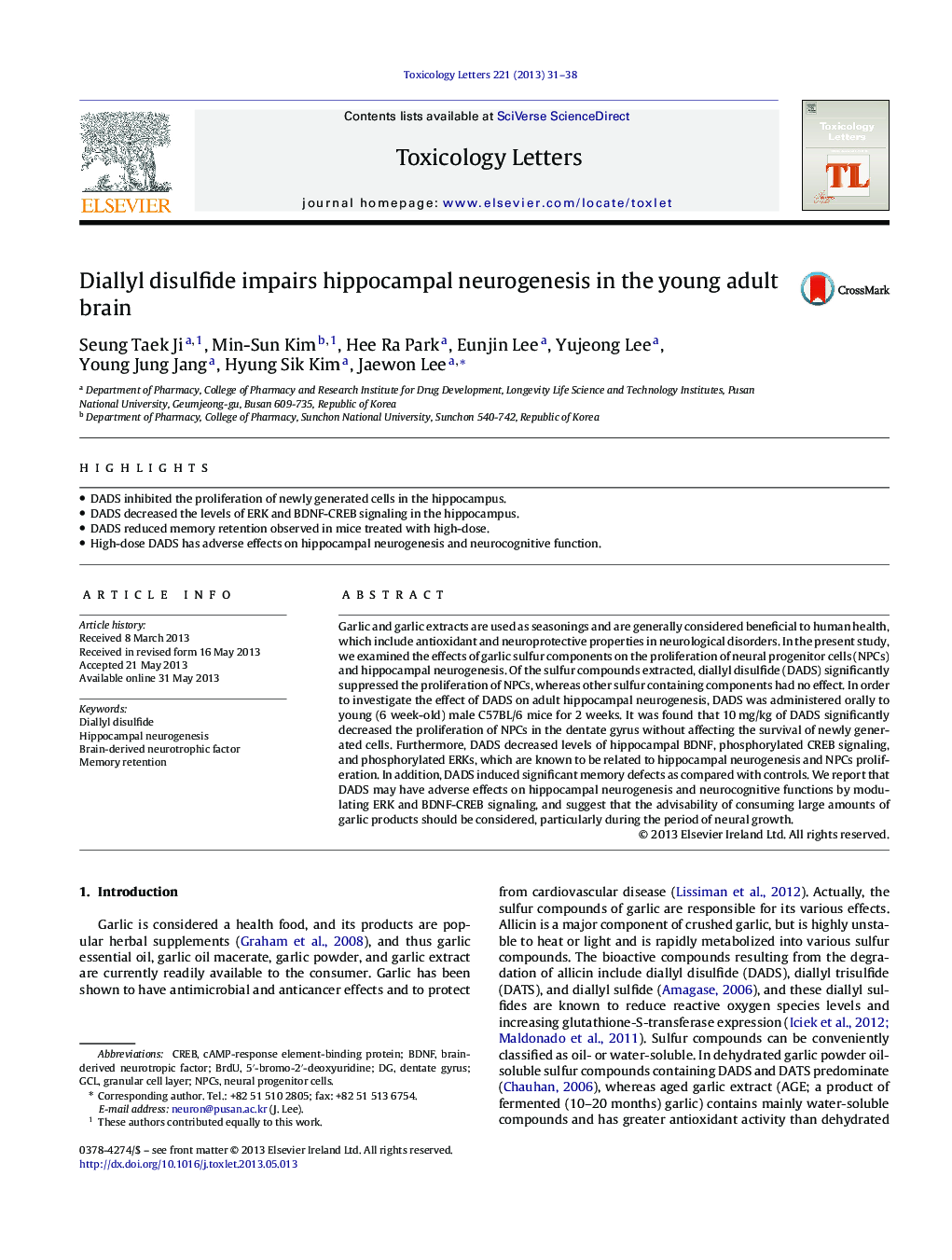| Article ID | Journal | Published Year | Pages | File Type |
|---|---|---|---|---|
| 5860524 | Toxicology Letters | 2013 | 8 Pages |
Abstract
Garlic and garlic extracts are used as seasonings and are generally considered beneficial to human health, which include antioxidant and neuroprotective properties in neurological disorders. In the present study, we examined the effects of garlic sulfur components on the proliferation of neural progenitor cells (NPCs) and hippocampal neurogenesis. Of the sulfur compounds extracted, diallyl disulfide (DADS) significantly suppressed the proliferation of NPCs, whereas other sulfur containing components had no effect. In order to investigate the effect of DADS on adult hippocampal neurogenesis, DADS was administered orally to young (6 week-old) male C57BL/6 mice for 2 weeks. It was found that 10Â mg/kg of DADS significantly decreased the proliferation of NPCs in the dentate gyrus without affecting the survival of newly generated cells. Furthermore, DADS decreased levels of hippocampal BDNF, phosphorylated CREB signaling, and phosphorylated ERKs, which are known to be related to hippocampal neurogenesis and NPCs proliferation. In addition, DADS induced significant memory defects as compared with controls. We report that DADS may have adverse effects on hippocampal neurogenesis and neurocognitive functions by modulating ERK and BDNF-CREB signaling, and suggest that the advisability of consuming large amounts of garlic products should be considered, particularly during the period of neural growth.
Keywords
Related Topics
Life Sciences
Environmental Science
Health, Toxicology and Mutagenesis
Authors
Seung Taek Ji, Min-Sun Kim, Hee Ra Park, Eunjin Lee, Yujeong Lee, Young Jung Jang, Hyung Sik Kim, Jaewon Lee,
